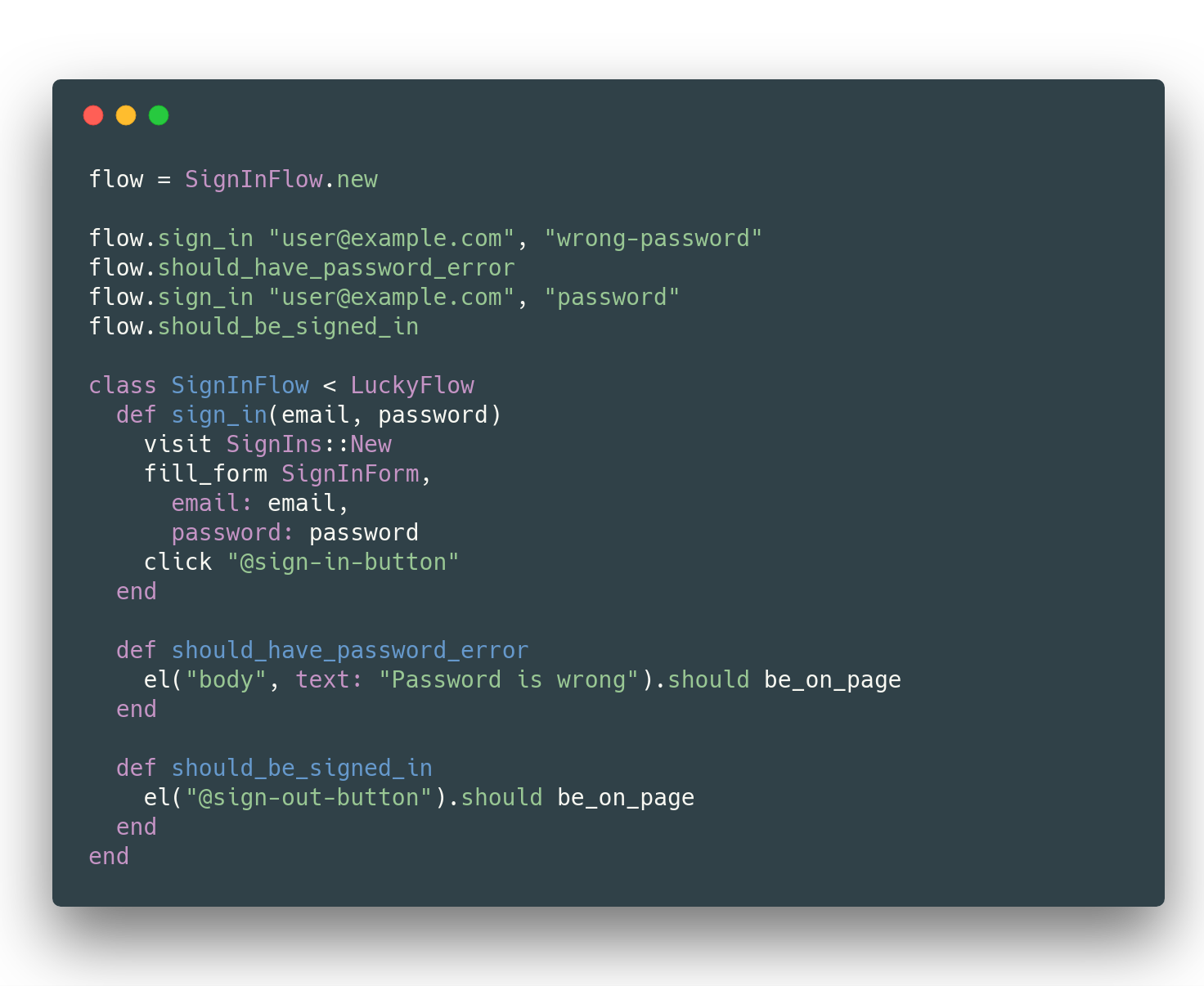LuckyFlow
LuckyFlow is a library for testing user flows in the browser. It is similar to Ruby's Capybara.
Installation in Lucky projects
LuckyFlow is already installed and configured. Check out the guides to see how to use it: https://luckyframework.org/guides/browser-tests/
Installation in other Crystal projects
Add this to your application's shard.yml:
development_dependencies:
lucky_flow:
github: luckyframework/lucky_flowConfigure LuckyFlow in spec/spec_helper.cr:
require "lucky_flow"
LuckyFlow.configure do |settings|
# This is required
settings.base_uri = "http://localhost:<port>"
# Optional settings. Defaults are shown here
settings.retry_delay = 10.milliseconds
settings.stop_retrying_after = 1.second
settings.screenshot_directory = "./tmp/screenshots"
settings.browser_binary = "/Applications/Brave Browser.app/Contents/MacOS/Brave Browser"
end
# Put this at the bottom of the file.
# If a required setting is missing, this will catch it.
Habitat.raise_if_missing_settings!Then view the guides: https://luckyframework.org/guides/browser-tests/
You should be ready to go!
Usage
Note that you can only pass string paths to
visitsince only Lucky has route helpers described in the guide below. Example:visit "/my-path"
View guide at: https://luckyframework.org/guides/browser-tests/
Contributing
- Fork it ( https://github.com/luckyframework/lucky_flow/fork )
- Create your feature branch (git checkout -b my-new-feature)
- Install docker and docker-compose: https://docs.docker.com/compose/install/
- Run
script/setup - Make your changes
- Run
script/testto run the specs, build shards, and check formatting - Commit your changes (git commit -am 'Add some feature')
- Push to the branch (git push origin my-new-feature)
- Create a new Pull Request
Contributors
- paulcsmith Paul Smith - creator, maintainer


